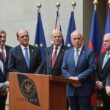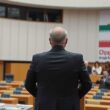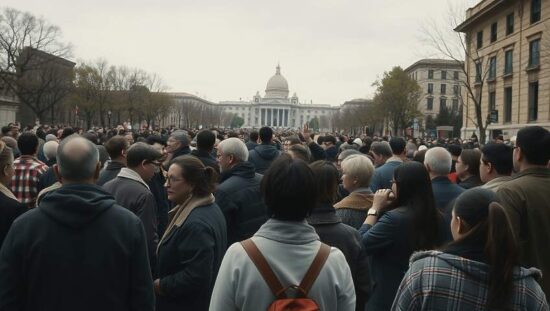The founder of the Christian children and youth organization Arche, Bernd Siggelkow, has launched a scathing critique of German political efforts to combat child poverty, arguing that the nation’s approach has demonstrably failed and exacerbated societal divisions. In a recent podcast interview, Siggelkow expressed profound disappointment, recalling an initial optimism surrounding the introduction of the national Poverty and Wealth Report in 2001. “I thought, ‘Hooray, something is finally being done about child poverty,'” he stated. He now contends that conditions have significantly worsened, with poverty rates tripling despite declining birth rates.
Arche, an organization founded in 1995, currently supports approximately 11,000 children daily, having worked with nearly 100,000 young people over its existence. Siggelkow framed Arche’s success as a direct consequence of societal shortcomings, stating bluntly, “The success of Arche is the failure of society”. He accuses politicians of neglecting the issue due to a perceived lack of political gain, pointing out that children are unable to vote and that politicians typically only visit Arche for photo opportunities during election campaigns.
In a surprising turn, Siggelkow recently joined the Christian Democratic Union (CDU) and intends to run in next year’s Berlin State Parliament election for the Union faction, signaling his commitment to direct political engagement. He argues that the ongoing refugee crisis has further complicated the situation, with Arche increasingly shouldering responsibilities typically performed by the state, including providing German language courses – not just for the children, but as a second language for their parents.
Beyond child poverty, Siggelkow’s critique extends to integration policies, which he believes are actively fostering segregation. He specifically criticized the placement of refugee housing, arguing that concentrating facilities in neighborhoods with already high migration rates has created “hotspots” and overwhelmed existing educational infrastructure, resulting in classrooms with significantly impaired German language proficiency. “Refugee facilities weren’t built in Zehlendorf or Dahlem, but in areas where the migration rate was already high” he explained. “Therefore, teachers suddenly have classes where half the children don’t speak German”. By failing to distribute these students and allowing the formation of insular subcultures, he argues, the current approach risks reinforcing negative societal trends. Siggelkow believes Arche provides a model for successful integration, where children from various backgrounds – German, Syrian, Afghan and Turkish – play together, learn from each other and broaden their perspectives – an outcome he insists the state is failing to achieve.





